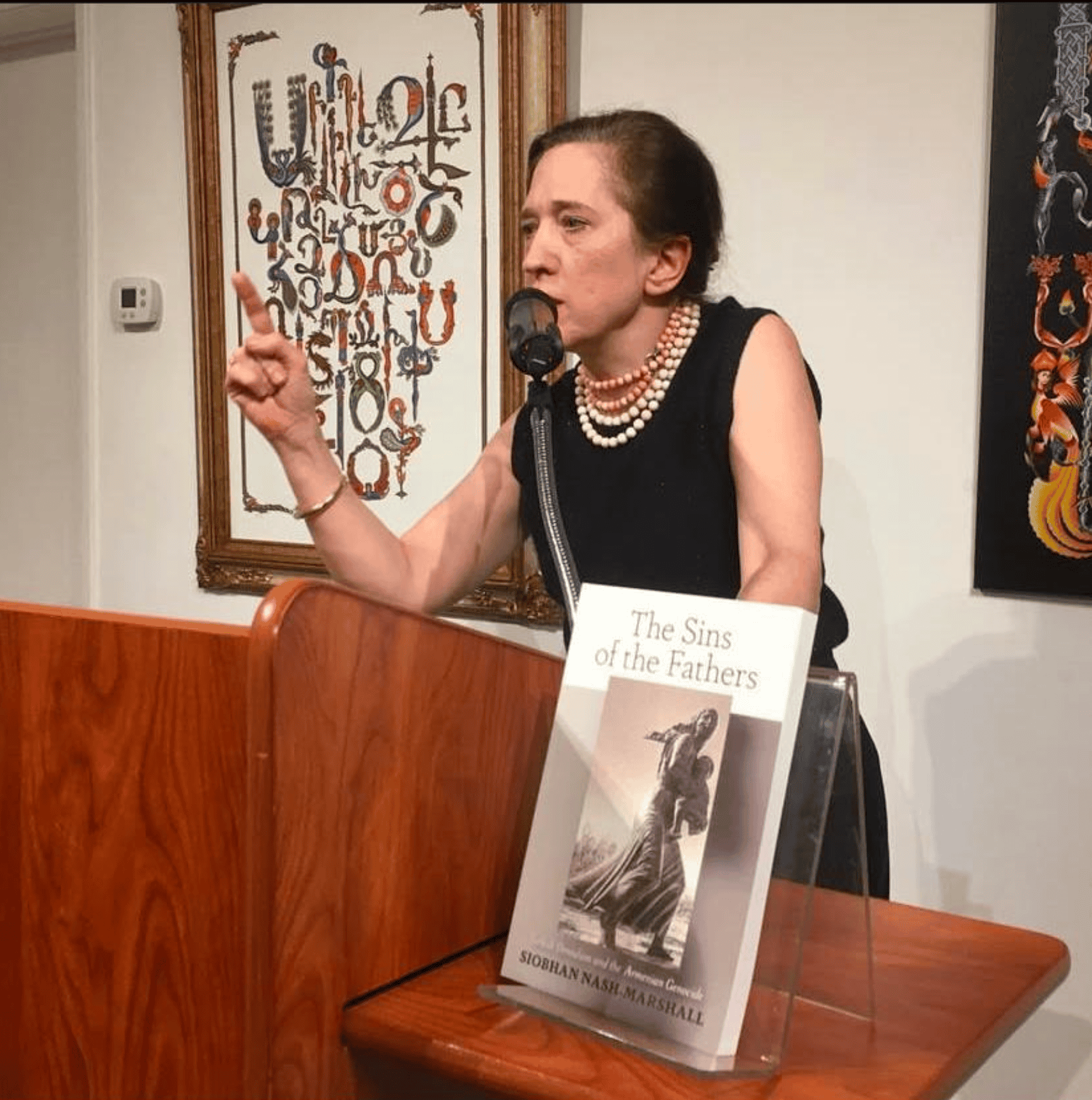SIOBHAN F. NASH-MARSHALL (July 4, 1965 – December 12, 2024)

It was with great sorrow that His Eminence, Archbishop Anoushavan, Prelate, and the Religious and Executive Councils of the Eastern Prelacy learned of the passing of Siobhan Nash-Marshall, a philosopher, educator, and advocate for the Armenian people and Artsakh, on December 12, 2024, in New York. She was 59.
A prolific author, she was a loyal friend of the Armenian nation, which also manifested itself in her close collaboration with renowned Armenian Italian writer Antonia Arslan, with whom she worked for 35 years. A polyglot, she had learned Armenian as well.
She was born in Munich, Germany on July 4, 1965. The date of her birth, which coincided with Independence Day, in a way seems to have prefigured her lifelong quest for justice and freedom for the underprivileged, driven by a profoundly Christian sense of charity and love.
Ms. Nash-Marshall was a professor of philosophy at Manhattanville College and held the Mary T. Clark Chair of Christian Philosophy. Her academic career spanned decades, with research focused on metaphysics, ethics, and genocide studies. Her contributions to Armenian scholarship included The Sins of the Fathers: Turkish Denialism and the Armenian Genocide. The volume was the first of Betrayal of Philosophy, a trilogy that attempted to diagnose the failures of philosophy which contributed to the horrors of the twentieth century, including the Holocaust.
Her works examined the ideological foundations of genocide and the persistence of denialism. In them, the Armenian Genocide is linked to broader philosophical systems that enabled what historian Eric Hobsbawm has called “The Age of Extremes.”
In 2017, Professor Nash-Marshall co-founded the Antonia Arslan Armenian Italian School in Stepanakert through her work with the Christians in Need Foundation. The initiative brought vocational education to the youth in Artsakh, offering courses in trades like carpentry, tailoring, and agriculture. Collaborating with Italian master artisans, the school established internships and training programs to equip students with practical skills.
“With her intellectual strength and charitable spirit, she stood by us, believing in our enduring struggle and the survival of our nation,” said Archbishop Anoushavan. “She exposed Turkish denialist mechanisms, proving their fabrications.”
The Prelate added that her books and research aimed to shed light on the truth, restore the history of the Armenian people, and advance justice.
Ms. Nash-Marshall’s involvement with Artsakh went beyond education. Her lectures and collaborations with Artsakh State University and Mesrop Mashtots University strengthened ties between Armenian institutions and international academics. Her presence in Artsakh underscored her commitment to its development and self-determination.
She argued that denial perpetuates genocide’s consequences and erases historical memory. Her research traced these patterns across the 20th century, analyzing the Armenian Genocide within broader philosophical frameworks.
Siobhan Nash-Marshall’s career reflected a dedication to truth, education, and justice. Her work provided Armenians and the global community with tools to preserve historical memory and foster resilience. Her legacy continues through her writings, students, and the youth of Artsakh who carry forward the skills she helped nurture.
Archbishop Anoushavan and the extended family of the Eastern Prelacy extend their condolences to her family and loved ones. May God illuminate her soul. Աստուած հոգին լուսաւորէ։
